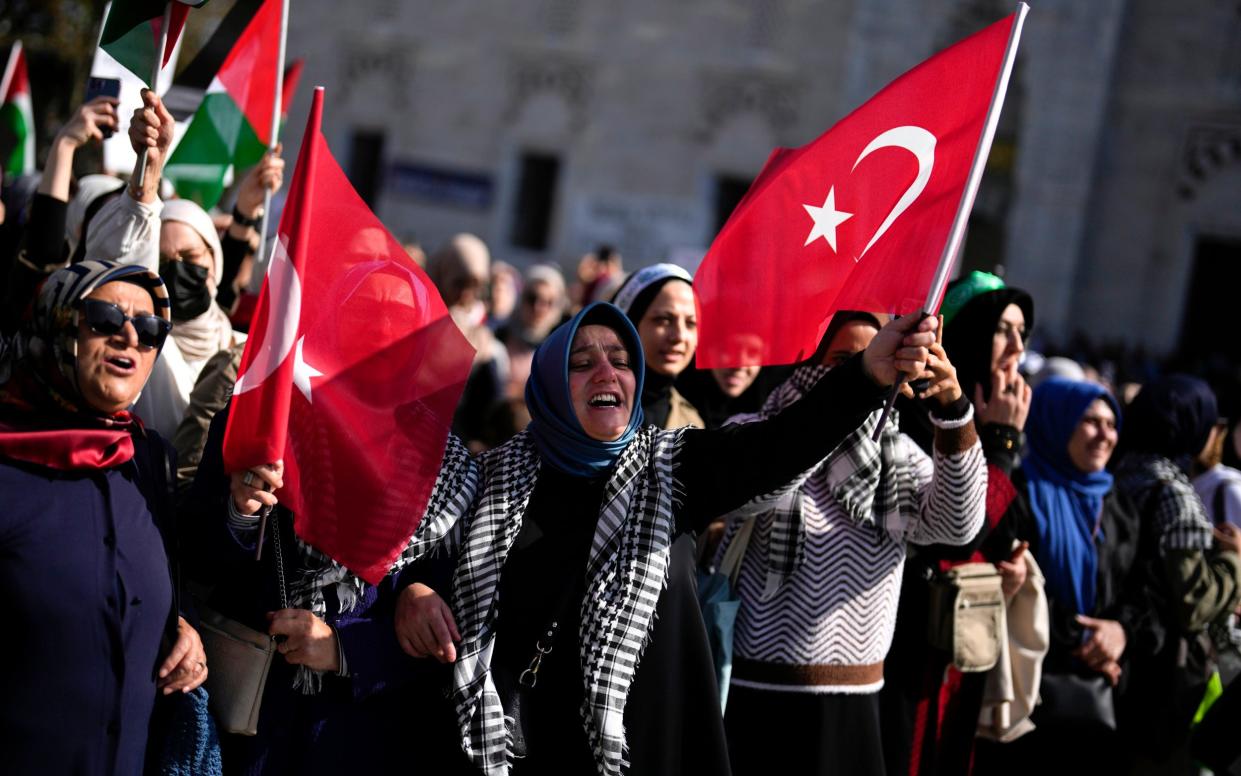Is it safe to visit Turkey? Latest travel advice

Turkey is one of the UK’s favourite holiday destinations, attracting more than 3.8 million British tourists in 2023.
However, given the recent terrorist attack on an aerospace company, and the escalating Middle East conflict, some people may be concerned about the safety of travelling to Turkey.
Here’s everything you need to know about travel to Turkey, whether it is safe to visit, and your rights if you do decide to cancel your upcoming holiday.
What happened in the recent terrorist attack?
On October 23, 2024 a man and a woman wielding automatic weapons opened fire on staff at the headquarters of a Turkish aerospace company in the Kahramankazan district.
Five people were killed and around a dozen more were injured in the attack.
The Foreign Office updated its advice on Turkey to read: “On 23 October there was a terrorist attack on Turkish Aerospace Industries’ facility in Kahramankazan, 40km northwest of central Ankara, which resulted in 5 deaths and 22 injuries, as well as the deaths of the two assailants. While the incident has ended, the response is ongoing, including increased security measures at Turkish airports, which means security checks will take longer than normal. If you are in the area near the attack, follow the advice of the local authorities and monitor local media.”
How far is Turkey from the Middle East conflict zone?
Antalya, a primary gateway to Turkey’s turquoise coast, is around 360 miles away from the Israel-Lebanon border. Istanbul is around 640 miles away. For comparison, London to Dundee is around 360 miles and London to Prague is around 640 miles.

What is the FCDO advice?
Turkey is not involved in the current Middle East conflict involving Israel, Palestine, Lebanon and Iran, and there is no blanket advisory against travel to Turkey.
On October 26, the FCDO updated its advice to Turkey to read: “Ongoing hostilities in the region and between Israel and Lebanon could escalate quickly and pose risks for the wider region. On 1 October, Iran launched around 200 ballistic missiles at Israel. On 26 October, Israel carried out military action against Iran. Monitor this travel advice and other media as the situation is changing fast.”
British visitors are also advised to avoid public protests: “Events in Israel and the Occupied Palestinian Territories have led to heightened tensions in the region and demonstrations are ongoing in locations across Turkey. Large demonstrations have been reported outside diplomatic missions connected to the conflict in major cities, particularly Israeli diplomatic missions in Ankara and Istanbul.”
Additionally, the FCDO advises against all travel within 10km of the border with Syria. It also warns against all non-essential travel to the city of Sirnak, close to the Syria and Iraq borders, and to the Hakkari province, which has a border with both Iraq and Iran.
Is there a risk of further terrorist attacks in Turkey?
The FCDO says: “There is a high threat of terrorist attack globally affecting UK interests and British nationals, including from groups and individuals who view the UK and British nationals as targets. Stay aware of your surroundings at all times.”
Most terrorist attacks have taken place in southeast Turkey, Ankara and Istanbul. The FCDO recommends visitors remain aware of their surroundings, particularly in public buildings, places of worship, airports and large public gatherings.
The FCDO adds: “Extremist groups based in Syria, including Daesh and Al-Qaeda linked groups, have the capacity to carry out attacks in neighbouring countries, including Turkey. Daesh has previously targeted border crossings and nearby locations on the Syrian side of the border.”
Are flights still running to Turkey?
Yes, although some airlines have adjusted their flight routes to avoid flying over the Middle East as a result of recent tensions. This means that some flights – particularly those arriving in Turkey from the UAE or South Asia – may take longer than usual.
Is it safe to visit Istanbul?
There is no FCDO warning against travel to Istanbul. However, the FCDO advises: “Street robbery and pick-pocketing are common in the major tourist areas of Istanbul. Be aware of your personal belongings and make sure they are always secure.”
They also advise: “In some busy areas, especially Istanbul, the authorities may stop people for ID checks.”
What if I want to cancel my holiday?
If you have booked a package holiday to Turkey and want to cancel your trip for any reason, contact your tour operator and they might offer flexibility with alternative dates.
But bear in mind that, because the Foreign Office has not issued any formal advice against travel to Turkey, there is no guarantee you will receive a refund, nor will you be able to claim money back with your travel insurance company.
If you have booked flights and accommodation independently, and wish to cancel your holiday, contact your travel providers as soon as possible to see if you can rearrange your plans. Note, however, that given the circumstances, it is unlikely you will receive a full refund.
You can see the full Turkey FCDO advice here.
This story was first published in October 2023 and has been revised and updated.


